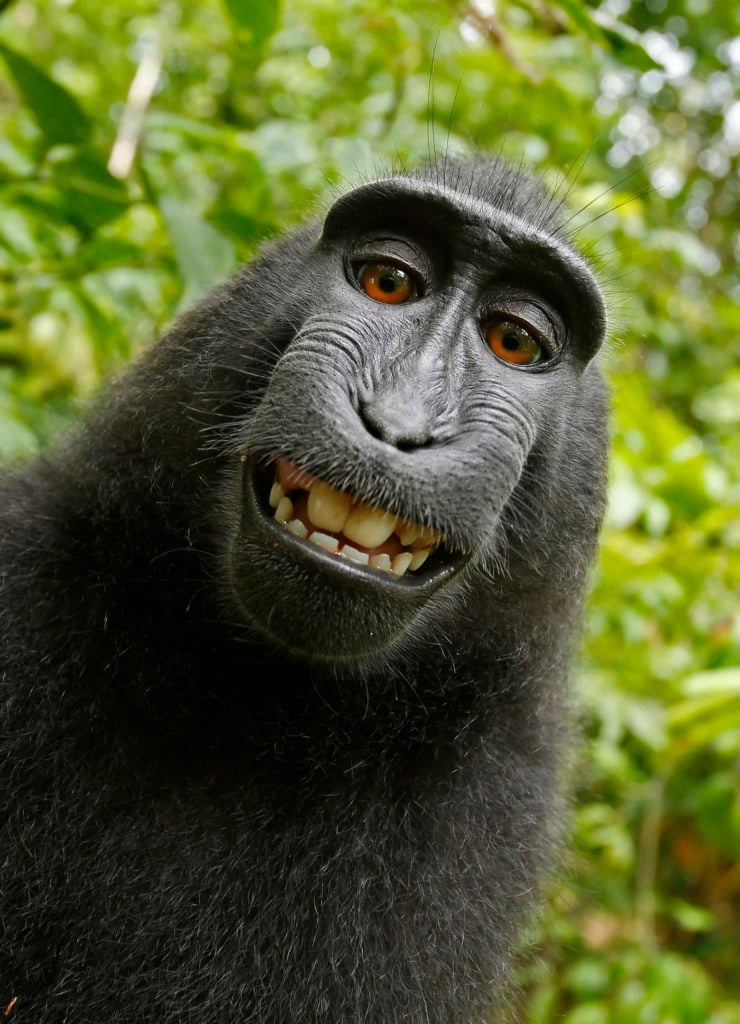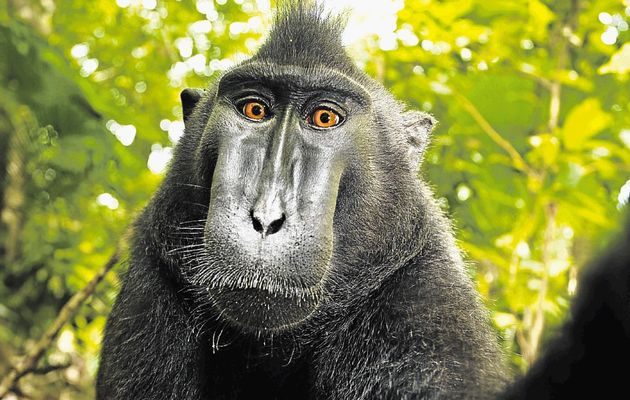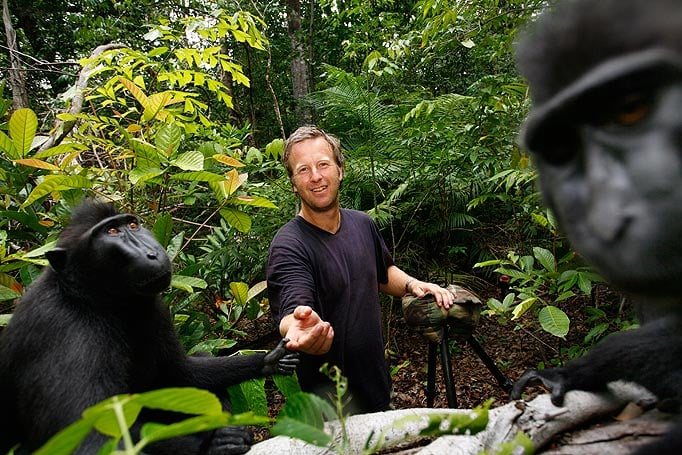Art World
PETA Files Ridiculous Suit Against Photographer for Profiting From a Monkey’s Selfie
Should a monkey get selfie profits?

Should a monkey get selfie profits?

Sarah Cascone

People for the Ethical Treatment of Animals (PETA) is suing British photographer David Slater on behalf of a monkey named Naruto, claiming that he had no right to distribute and sell a selfie the animal took with the artist’s camera in 2011.
PETA and German zoologist Antje Engelhardt claim that all the profits made from the dissemination of the image in Slater’s book Wildlife Personalities should go toward Naruto and his fellow crested macaques, an endangered species. According to the International Union for Conservation, the crested macaque population has fallen by 80 percent over the past 40 years.
In the complaint, according to Courthouse News, the plaintiffs argue that “had the monkey selfies been made by a human using Slater’s unattended camera, that human would be declared the photograph’s author and copyright owner.”

A second selfie taken by a crested black macaque on David Slater’s camera.
PETA is claiming that Slater himself recognized Naruto’s self-awareness in creating the shot when he wrote in his book that the monkey made “several funny faces” and was likely enjoying a “fun and artistic experiment with his own appearance.”
In response to the suit, Slater took to Facebook calling PETA “greedy” and saying they wished “to exploit the selfie for their own agenda.”
“I am obviously bemused at PETA’s stunt but also angry, as well as sad,” Slater wrote noting, in his defense, that he had worked with the organization in the past to protect wild boars. “This makes animal welfare charities look bad which saddens me, deflecting away from the animals and onto stunts like this.”
In the case, PETA seeks “declaratory judgment, damages for copyright infringement, a permanent injunction to stop sales and licensing of the photos, and disgorgement of profits from them,” according to Courthouse News. “It also wants the authority to administer and protect Naruto’s authorship rights.”
The photo’s authorship has been in the news before, when Slater looked to protect his own rights to the image, accusing the Wikimedia Foundation of violating his copyright.

David Slater with crested black macaques.
In response, the US Copyright Office proclaimed that it would “not register works produced by nature, animals, or plants.” (A ruling that is bad news for all animal artist owners—painting goats, elephants, and conceptually-minded dogs alike.)
PETA’s lawyer, Jeffry Kerr, doesn’t see that opinion as a setback, telling the Daily Mail that “the act grants copyright to authors of original works, with no limit on species. Copyright law is clear: It’s not the person who owns the camera, it’s the being who took the photograph.”
“If we prevail in this lawsuit, it will be the first time that a non-human animal is declared the owner of property rather than being declared a piece of property himself or herself,” Jeffrey Kerr added in a statement.
Slater seems understandably frustrated by the whole affair, noting “I now have one corporation wanting my images to have no copyright, and another who wishes the copyright belongs to them (via the monkey).” (His company, Wildlife Personalities Ltd., does hold the British copyright for the image.)
“Had [PETA] contacted me I would support them in efforts to get animals recognized legally with an aim to promote animal dignity,” added Slater. “Sadly they choose to attack me personally in this ridiculous way which puts me under more financial and emotional stress.”